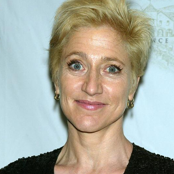From "Hot Lips" Houlihan to Nurse Jackie, how close does the image of television nurses compare to the reality of nursing? There is no one stereotypical nurse, but there are grains of truth within the fiction.
The Independent Woman
As a widowed nurse and single mother, Julia Baker, Diahann Carroll's character on the television show Julia, was far from common in 1968. Her determination to make her own way following the loss of her husband in Vietnam reflects many nurses today, who are single or divorced, often with children, and are the main breadwinners in their families.
Why is this? Few traditionally female professions offer salaries as attractive and livable as nursing careers. According to U.S. Bureau of Labor Statistics, registered nurses earn an average wage of $64,690 per year nationally.
You're Not a Doctor?
While television shows often portray nurses as strong women, emasculating stereotypes are often used for their male counterparts, and this is played upon as a joke at times, according to a study reported by Reuters Health. Nurse and midwife Dell Parker on Private Practice was forced into wearing pink scrubs, for instance.
The War Hero
Television loves its war nurses. On M*A*S*H*, Loretta Swit played Margaret Houlihan, known more for her love of Lt. Frank Burns and her "hot lips" instead of her bedside manner. But when things got serious, Houlihan showed the caring side beneath her humorless exterior and that she could hold her own with the boys.
Colleen Murphy on China Beach reminded us of the sacrifices of idealistic nurses who volunteered to go to war. Like Murphy, nurses sometimes martyr themselves to help others. They frequently come to the profession with an innocence in their desire to help the sick, but suffer a degree of shock at the reality of nursing and dealing with tragedy on a daily basis, whether on the battle front or in a hospital. Nurses have to be caring and tough as nails, and fortunately, most possess both qualities.
Do As I Say, Not As I Do
Some of the best nurse portrayals come from the show Nurse Jackie, in which you see care and toughness brought to a whole new level by Edie Falco's character. Aside from the drug dependence issue, Falco may have created the most accurate, believable nurse in television history.
Nurses often use their sense of humor as a coping mechanism (see the infamous tap dancing scene) and unfortunately, they often prove to be much better at advising others than managing their own personal lives. Yes, there are cases of drug abuse in nursing and all medical professions. And like Nurse Jackie, many nurses are divorced. But those who learn to take care of themselves and their personal lives before taking care of others can avoid the pitfalls inherent in this or any other profession.
Today's television nurses are keeping it real more than ever before. It's fiction, but with a healthy dose of truth.
Photo Source: Wikimedia Commons
[cf]skyword_tracking_tag[/cf]


